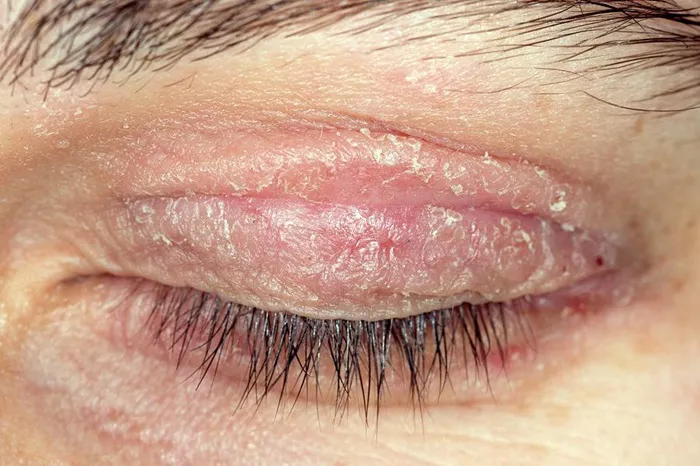Eczema, also known as atopic dermatitis, is a common skin condition characterized by red, itchy, and inflamed patches of skin. While there is no cure for eczema, there are strategies individuals can adopt to manage symptoms and prevent flare-ups. One crucial aspect of eczema management is identifying and avoiding triggers that can exacerbate the condition. In this comprehensive guide, we will explore various factors that individuals with eczema should avoid to maintain healthy skin and minimize discomfort.
Understanding Eczema Triggers
Eczema triggers are substances or environmental factors that can worsen symptoms or cause flare-ups in individuals with the condition. Triggers can vary from person to person, making it essential for individuals with eczema to identify their specific triggers through trial and error. While triggers can differ, some common culprits include:
Irritants: Substances that can irritate the skin, such as harsh soaps, detergents, and fragrances.
Allergens: Substances that trigger allergic reactions, such as pollen, pet dander, and certain foods.
Environmental Factors: Changes in temperature, humidity levels, and exposure to certain weather conditions can impact eczema symptoms.
Stress: Emotional stress and anxiety can exacerbate eczema symptoms in some individuals.
Scratching: Excessive scratching can damage the skin barrier and worsen inflammation and itching.
By identifying and avoiding these triggers, individuals with eczema can better manage their condition and reduce the frequency and severity of flare-ups.
What to Avoid for Eczema Relief
1. Harsh Soaps and Detergents
Many soaps and detergents contain harsh chemicals and fragrances that can irritate sensitive skin and disrupt the skin barrier. Individuals with eczema should opt for gentle, fragrance-free cleansers and detergents specifically formulated for sensitive skin. Look for products labeled as “hypoallergenic” or “fragrance-free” to minimize the risk of irritation.
2. Hot Water Baths and Showers
Hot water can strip the skin of its natural oils and exacerbate eczema symptoms. Instead of hot baths or showers, opt for lukewarm water and limit bathing time to 10-15 minutes. Pat the skin dry gently with a soft towel after bathing, rather than rubbing vigorously, to avoid further irritation.
3. Synthetic Fabrics
Synthetic fabrics such as polyester and nylon can trap heat and moisture against the skin, leading to increased itching and irritation for individuals with eczema. Instead, choose breathable, natural fabrics such as cotton and bamboo, which allow for better airflow and help keep the skin cool and dry.
4. Wool and Rough Textures
Wool and other rough textures can irritate sensitive skin and trigger eczema flare-ups. Avoid wearing clothing made from wool or rough fabrics directly against the skin. Opt for soft, smooth fabrics and consider wearing a cotton or silk undershirt beneath sweaters or wool garments to minimize skin irritation.
5. Fragranced Products
Fragrances found in perfumes, colognes, lotions, and skincare products can contain chemicals that irritate sensitive skin and exacerbate eczema symptoms. Choose fragrance-free or hypoallergenic alternatives to reduce the risk of irritation. Be cautious when trying new products and perform patch tests on a small area of skin before applying them to larger areas.
6. Environmental Triggers
Environmental factors such as pollen, mold, dust mites, and pet dander can trigger allergic reactions and worsen eczema symptoms. Take steps to minimize exposure to these triggers by using air purifiers, regularly cleaning and vacuuming the home, and keeping pets out of bedrooms or off furniture.
7. Stress and Anxiety
Stress and anxiety can exacerbate eczema symptoms in some individuals. Practice stress management techniques such as deep breathing, meditation, yoga, or progressive muscle relaxation to reduce stress levels and promote relaxation. Engage in activities that bring joy and relaxation, such as hobbies, exercise, or spending time with loved ones.
8. Excessive Scratching
While scratching may provide temporary relief from itching, it can damage the skin barrier and lead to further inflammation and irritation. Encourage alternatives to scratching, such as applying cold compresses, moisturizing the skin, or using over-the-counter anti-itch creams or ointments. Keep nails short and smooth to minimize skin damage from scratching.
Developing a Personalized Eczema Management Plan
Managing eczema requires a personalized approach tailored to individual triggers and symptoms. In addition to avoiding common triggers, individuals with eczema should develop a comprehensive management plan that includes:
Regular Moisturization: Use emollient-rich moisturizers to hydrate and protect the skin. Apply moisturizer immediately after bathing to lock in moisture and prevent dryness.
Topical Corticosteroids: For moderate to severe eczema flare-ups, topical corticosteroids may be prescribed to reduce inflammation and itching. Follow your healthcare provider’s recommendations for application and duration of use.
Avoiding Known Allergens: Identify and avoid specific allergens that trigger eczema flare-ups, such as certain foods, pet dander, or environmental allergens.
Regular Follow-Up with Healthcare Provider: Schedule regular follow-up appointments with your dermatologist or healthcare provider to monitor your eczema and adjust treatment as needed.
By taking a proactive approach to eczema management and avoiding triggers, individuals can minimize symptoms, reduce the frequency of flare-ups, and enjoy healthier, more comfortable skin.
Conclusion
Eczema can be a challenging condition to manage, but by identifying and avoiding triggers, individuals can take control of their symptoms and enjoy healthier, more comfortable skin. By avoiding harsh soaps and detergents, hot water baths, synthetic fabrics, fragranced products, environmental triggers, stress, and excessive scratching, individuals with eczema can reduce the frequency and severity of flare-ups and improve their overall quality of life. Developing a personalized eczema management plan in collaboration with a healthcare provider is essential for effectively managing symptoms and achieving long-term relief. With careful attention to triggers and proactive management strategies, individuals with eczema can enjoy healthier, more comfortable skin and a better quality of life.
[inline_related_posts title=”You Might Be Interested In” title_align=”left” style=”list” number=”6″ align=”none” ids=”9572,9501,9494″ by=”categories” orderby=”rand” order=”DESC” hide_thumb=”no” thumb_right=”no” views=”no” date=”yes” grid_columns=”2″ post_type=”” tax=””]































